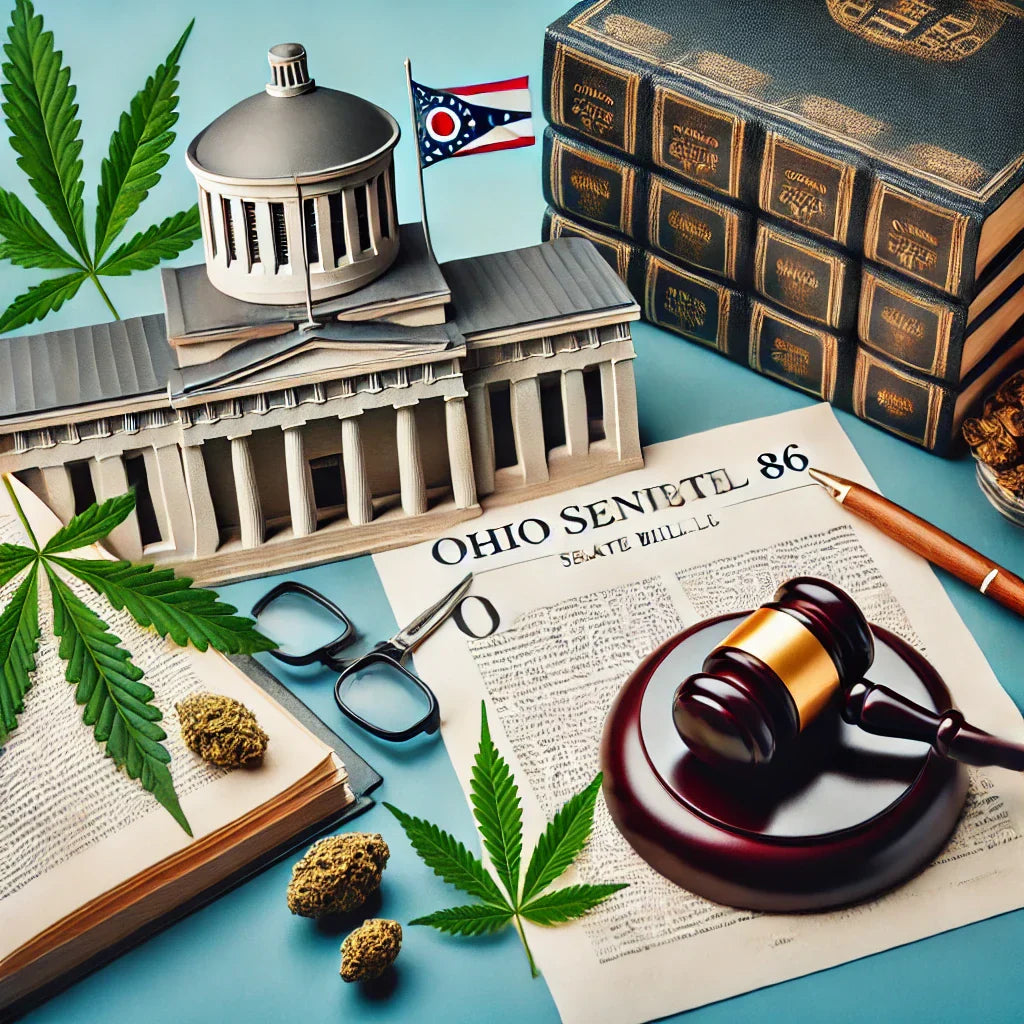
Ohio SB 86 Threatens Hemp Industry: Limits THC & Bans E-Commerce
Ohio Senate Bill 86: Implications for Intoxicating Hemp Products and Consumer Access
Ohio's legislative landscape is undergoing significant changes with the introduction of Senate Bill 86 (SB 86), a bill that seeks to redefine the regulation of intoxicating hemp products within the state. This proposed legislation has sparked considerable debate among stakeholders, including consumers, small business owners, and policymakers.
Understanding Senate Bill 86
Introduced in February 2025, SB 86 aims to regulate and tax intoxicating hemp products and drinkable cannabinoid products. The bill proposes that any hemp-derived product containing more than 0.5 milligrams of delta-9 tetrahydrocannabinol (THC) per serving, more than 2 milligrams of delta-9 THC per package, or more than 0.5 milligrams of total non-delta-9 THC per package be classified as intoxicating. Such products would be restricted for sale exclusively through licensed dispensaries.
(source: www.legislature.ohio.gov)
Notably, SB 86 includes specific provisions for hemp beverage products, allowing their retail sale if they do not exceed 0.3% of any THC, 0.4% of THC per fluid ounce, and are packaged in containers not exceeding 48 fluid ounces. This means a four-pack of 12-ounce beverages would comply with the proposed regulations.
(source: hempsupporter.com)
Impact on E-commerce and Small Businesses
A significant concern arising from SB 86 is its potential ban on direct-to-consumer e-commerce sales of intoxicating hemp products. This restriction could severely impact small businesses that rely on online sales to reach their customer base. Ahmad Khalil, owner of Hippie Hut Smoke Shop in Columbus, expressed apprehension, stating that such legislation could force many small retailers to shut down, leading to job losses and broken commercial contracts.
(source: spectrumnews1.com)
Arguments For and Against the Bill
Proponents of SB 86 argue that the bill is necessary to protect public health, particularly to prevent underage access to intoxicating hemp products. State Senator Stephen Huffman emphasized the dangers unregulated delta-8 and other intoxicating hemp products pose, especially to children.
(source: spectrumnews1.com)
Opponents, however, contend that the bill's THC limits are arbitrarily low and could effectively ban many hemp-derived products that consumers currently use responsibly. They also highlight that the prohibition of e-commerce sales could stifle the burgeoning hemp industry in Ohio, disadvantaging small businesses and limiting consumer access.
(source: hempsupporter.com)
The Call for Balanced Regulation
The Ohio Healthy Alternatives Association (OHAA) acknowledges the need for regulation to ensure consumer safety and prevent underage use. However, OHAA advocates for balanced legislation that considers the economic impact on small businesses and preserves consumer access to a variety of hemp products. OHAA urges lawmakers to engage with industry stakeholders to develop regulations that protect public health without imposing undue burdens on businesses and consumers.
Conclusion
Senate Bill 86 represents a pivotal moment in Ohio's approach to hemp product regulation. As the bill progresses through the legislative process, it is crucial for all parties involved to consider both the public health objectives and the economic implications. Collaborative efforts can lead to a regulatory framework that safeguards consumers, supports small businesses, and reflects the diverse interests of Ohioans.
Note: This article is for informational purposes only and reflects the perspectives of the Ohio Healthy Alternatives Association.




